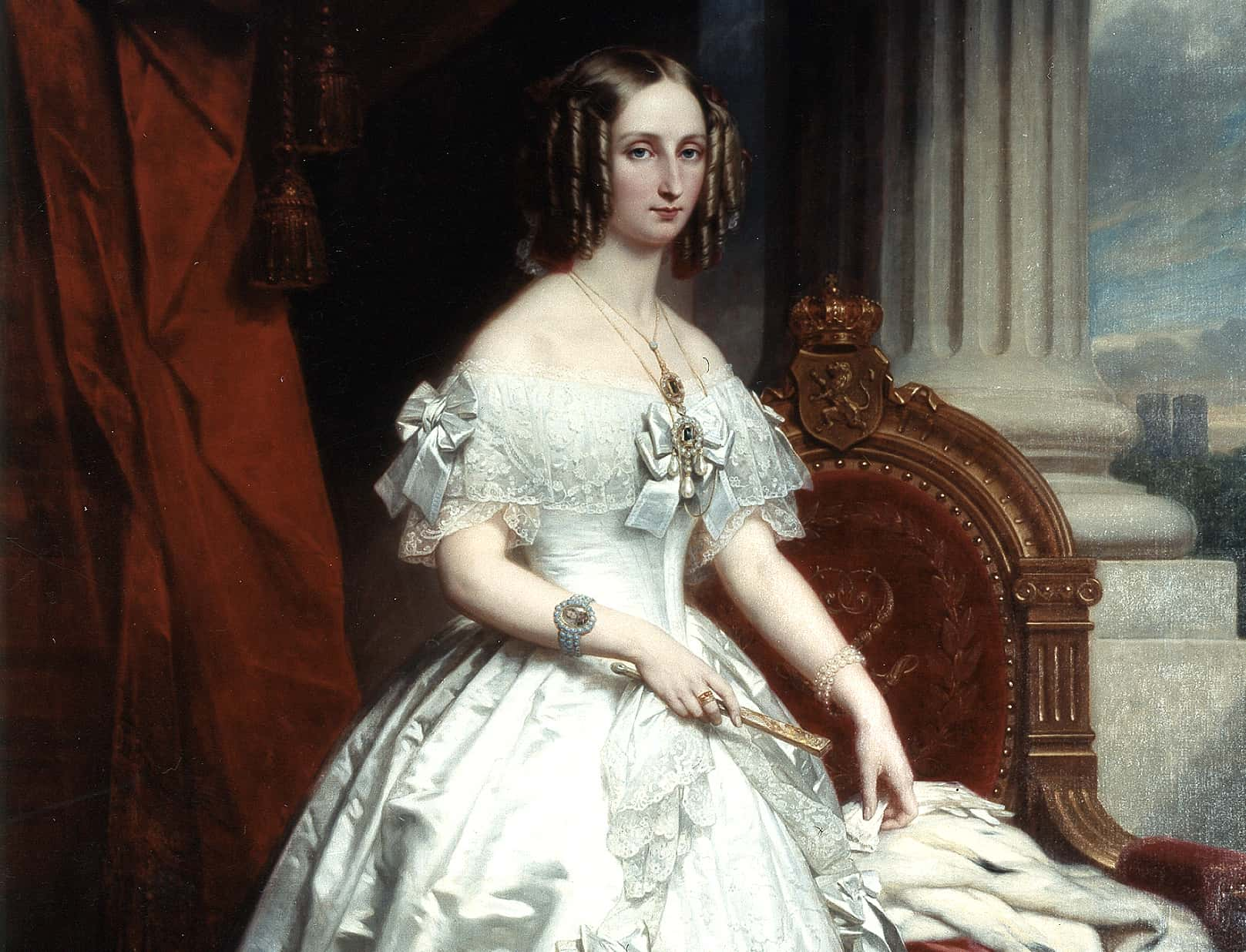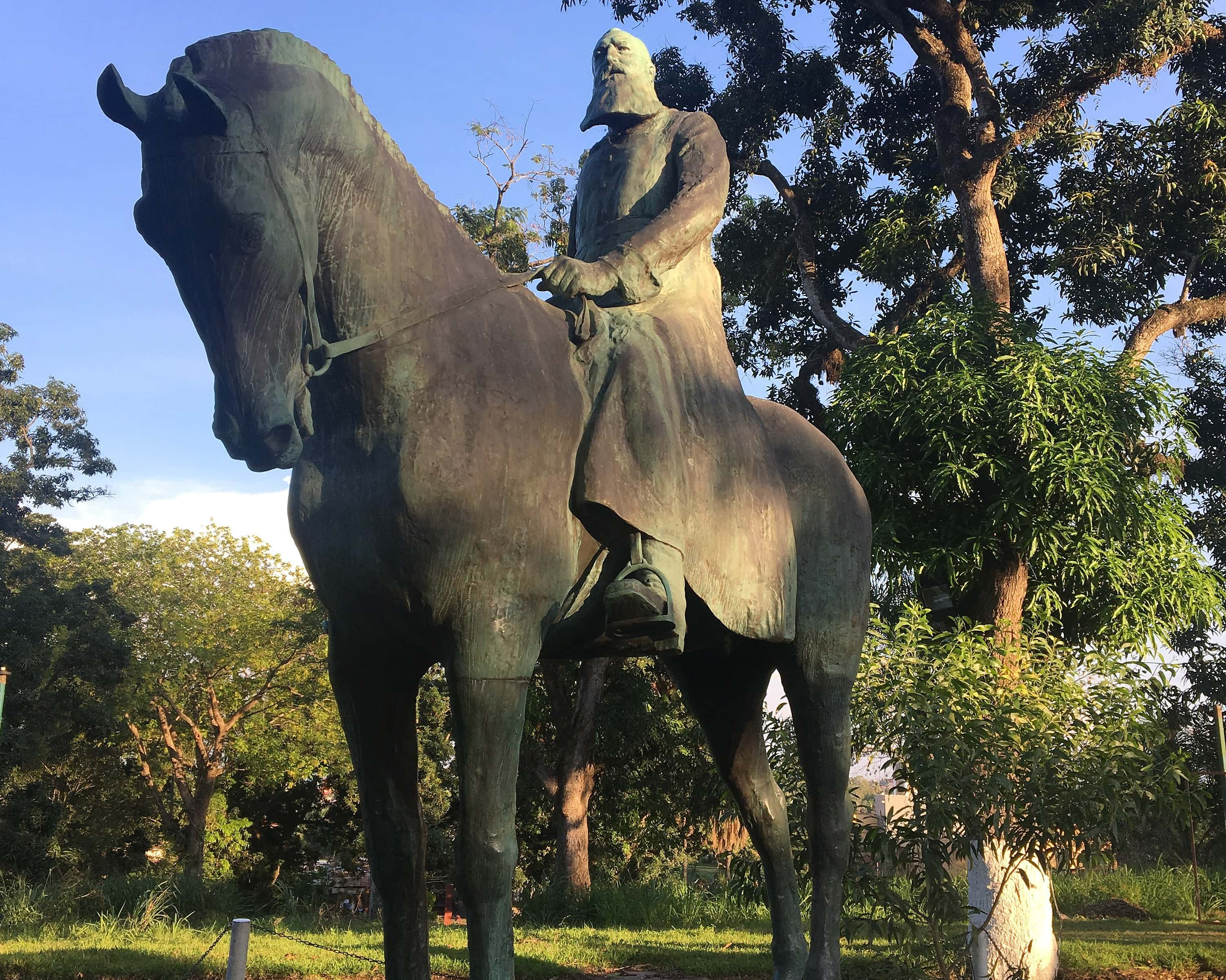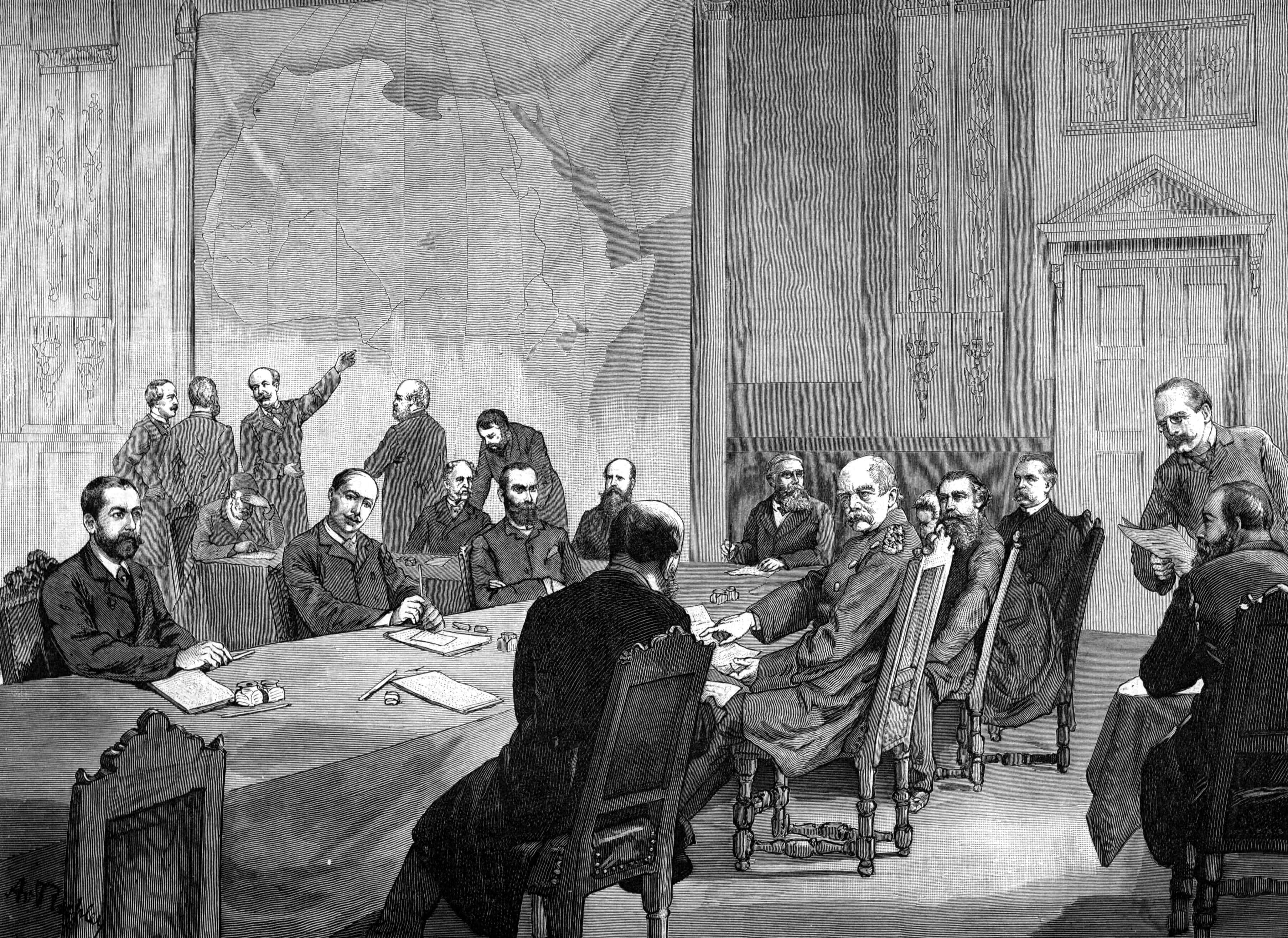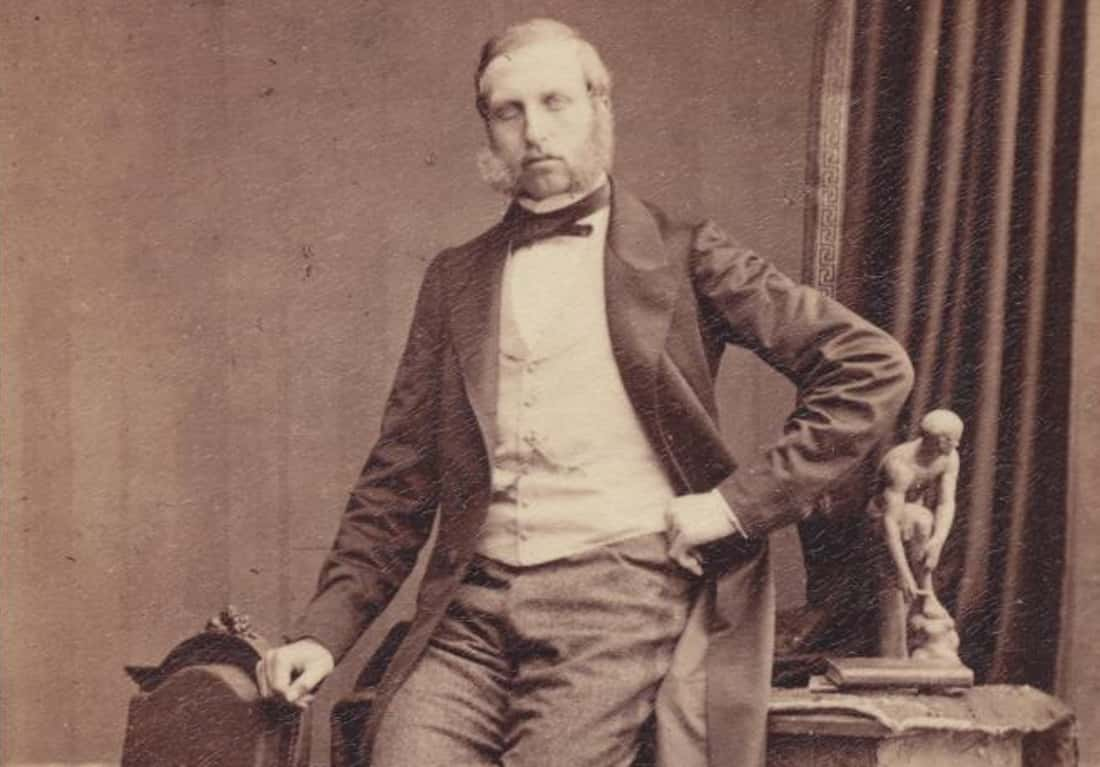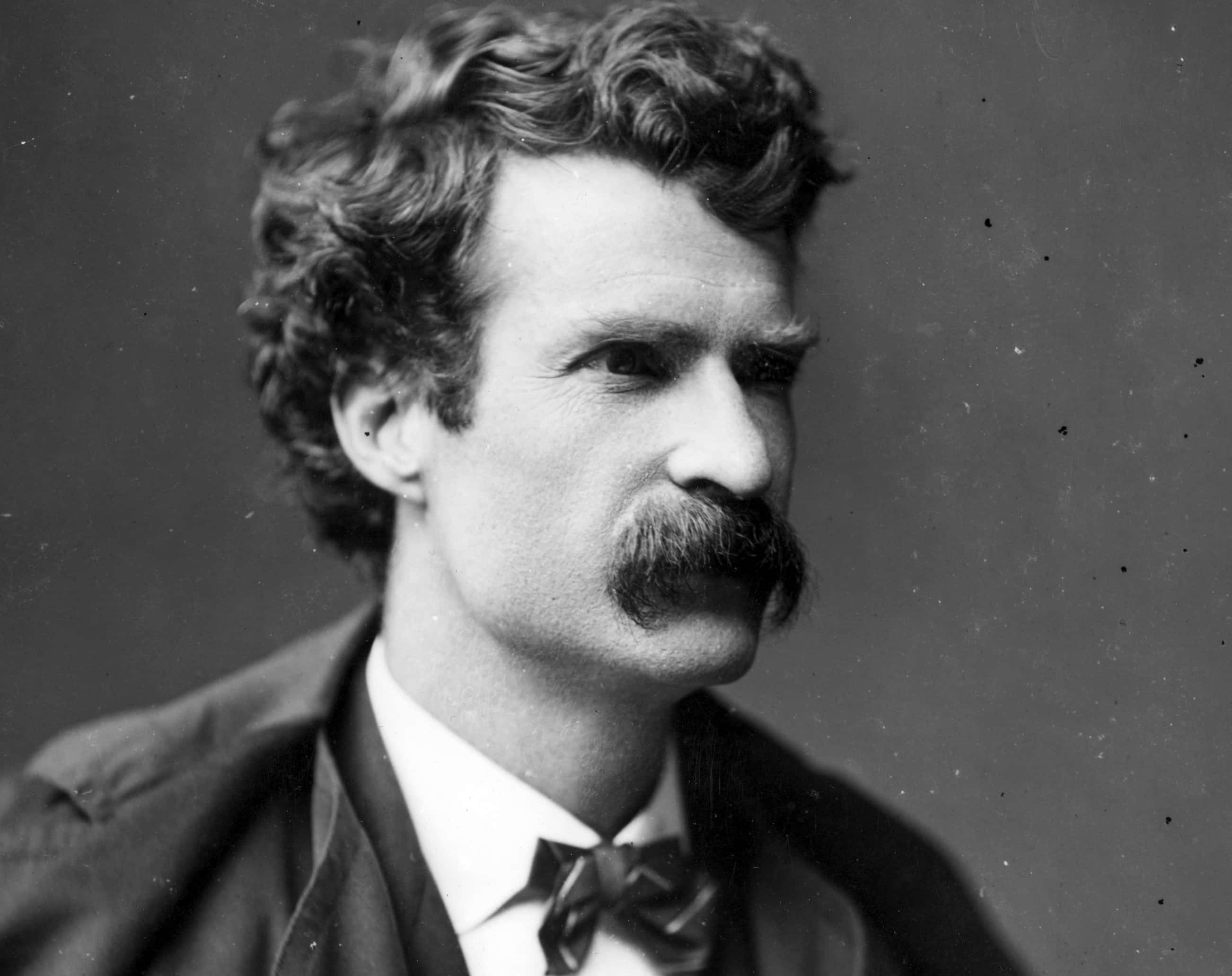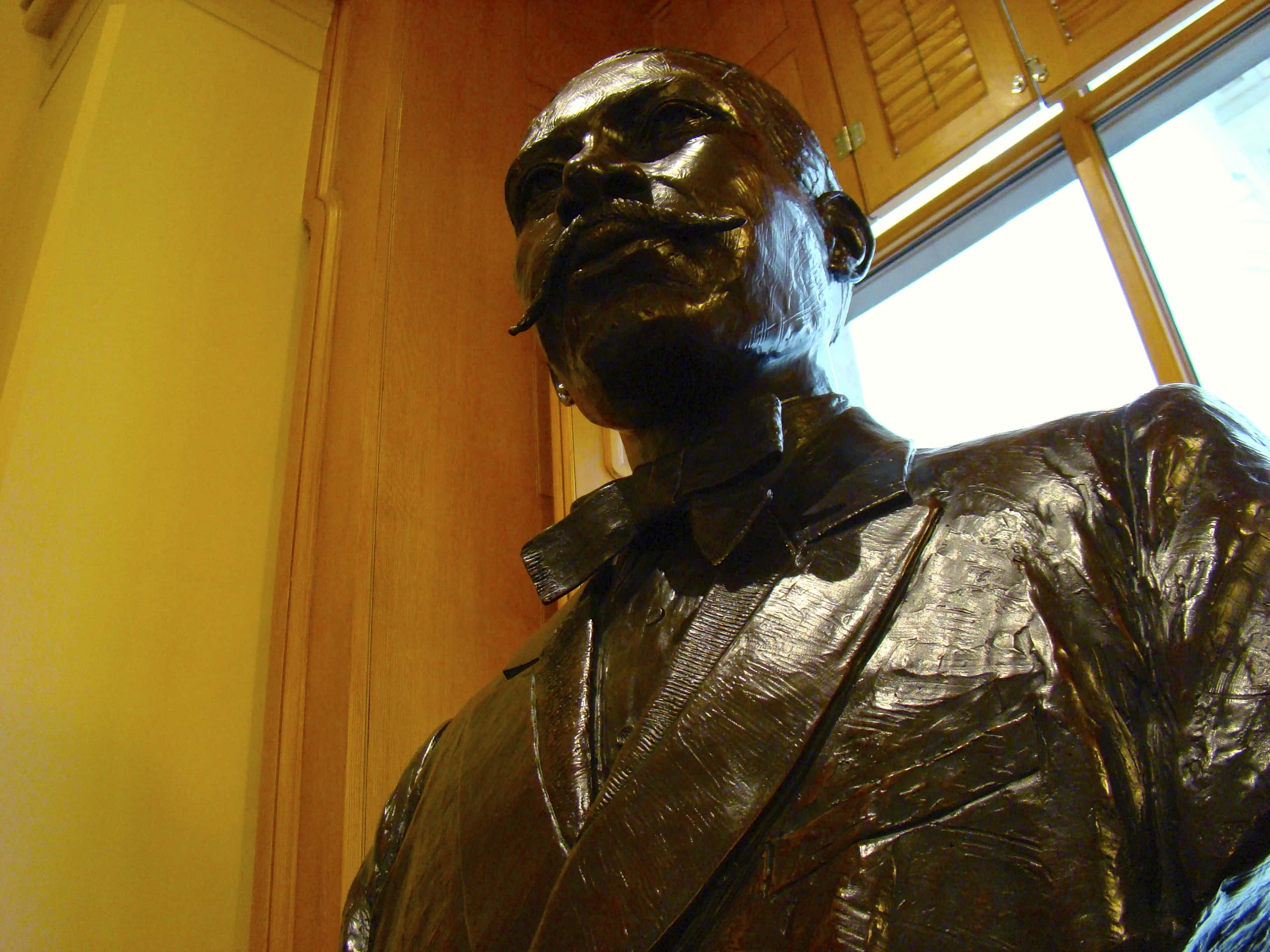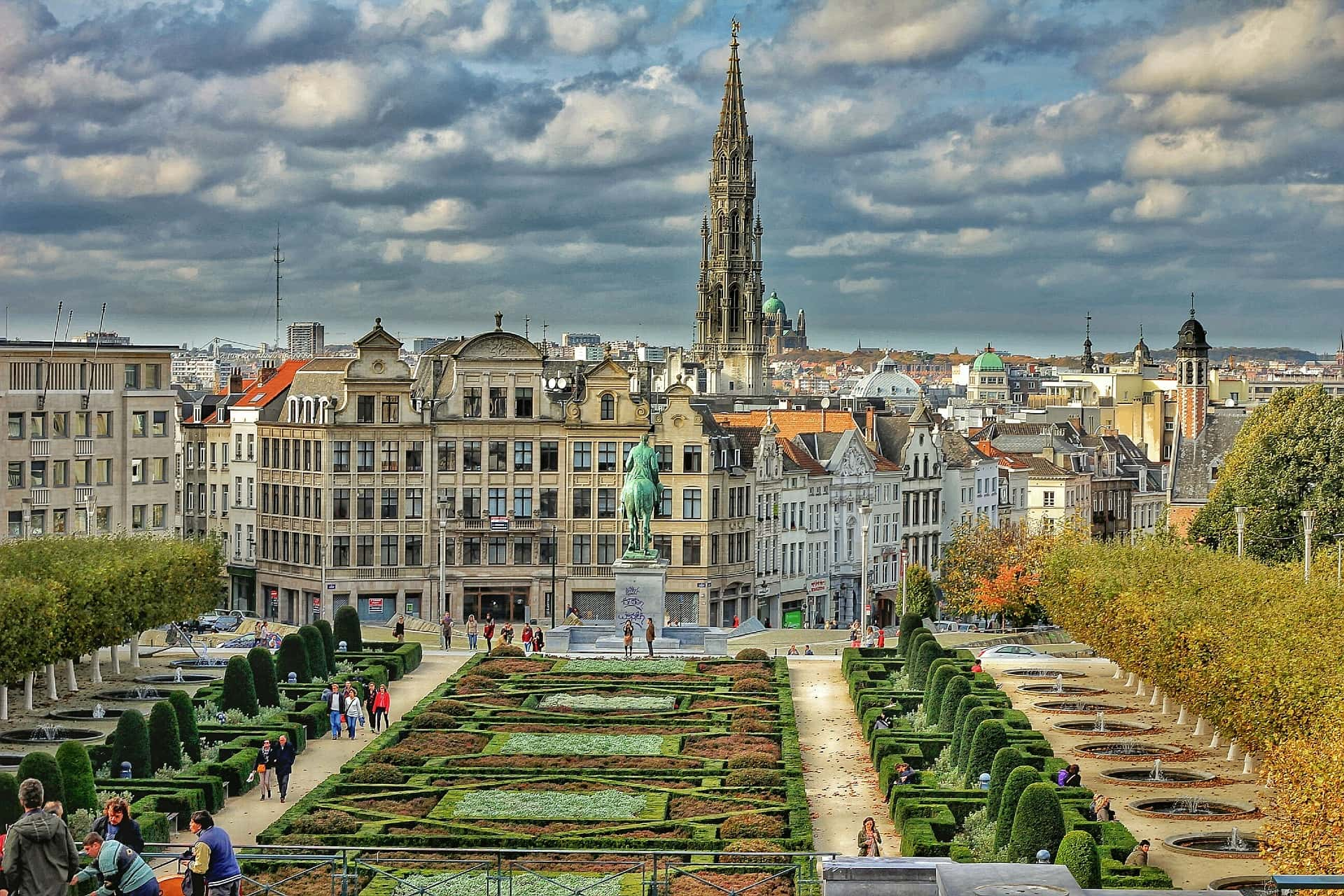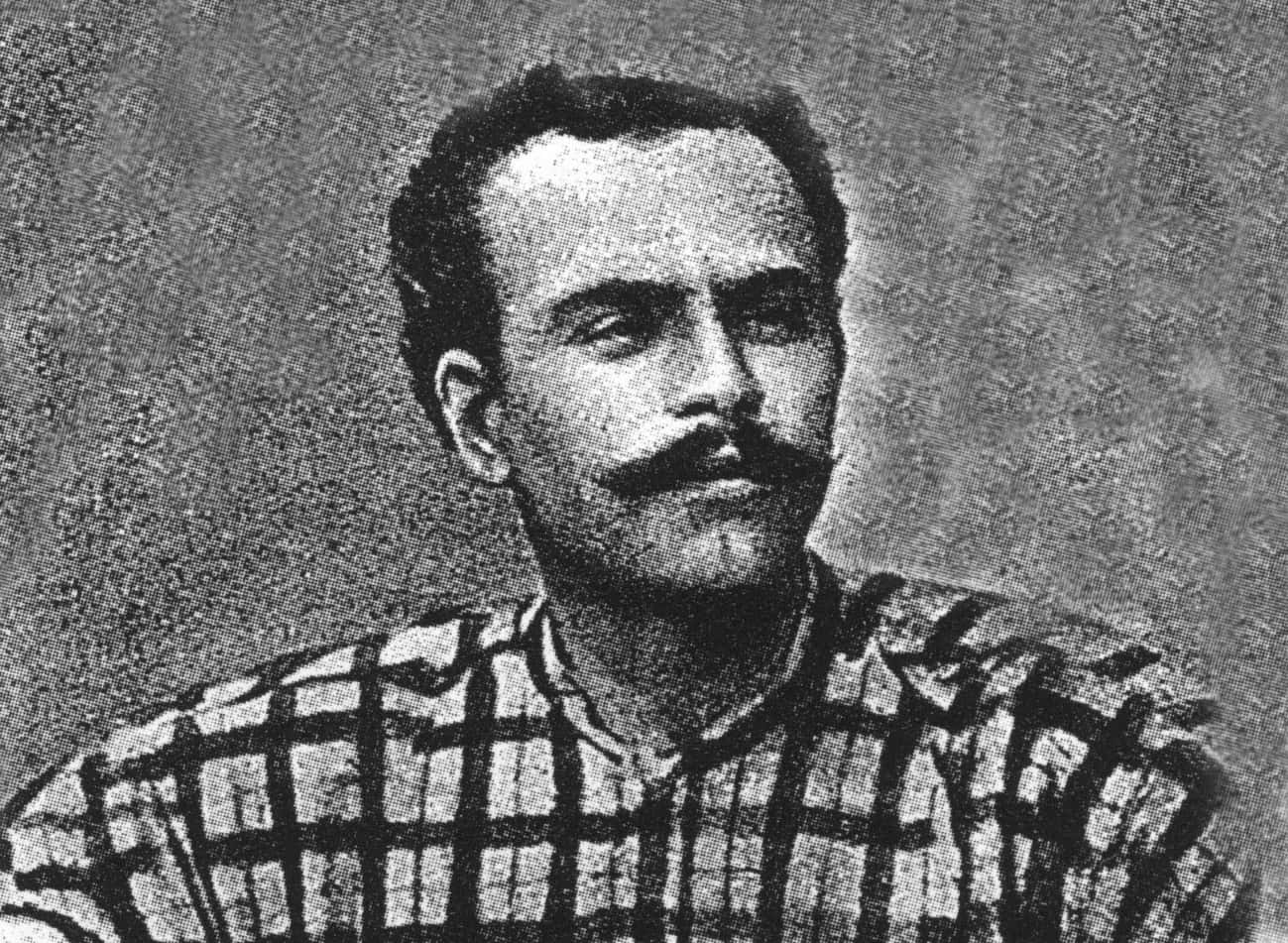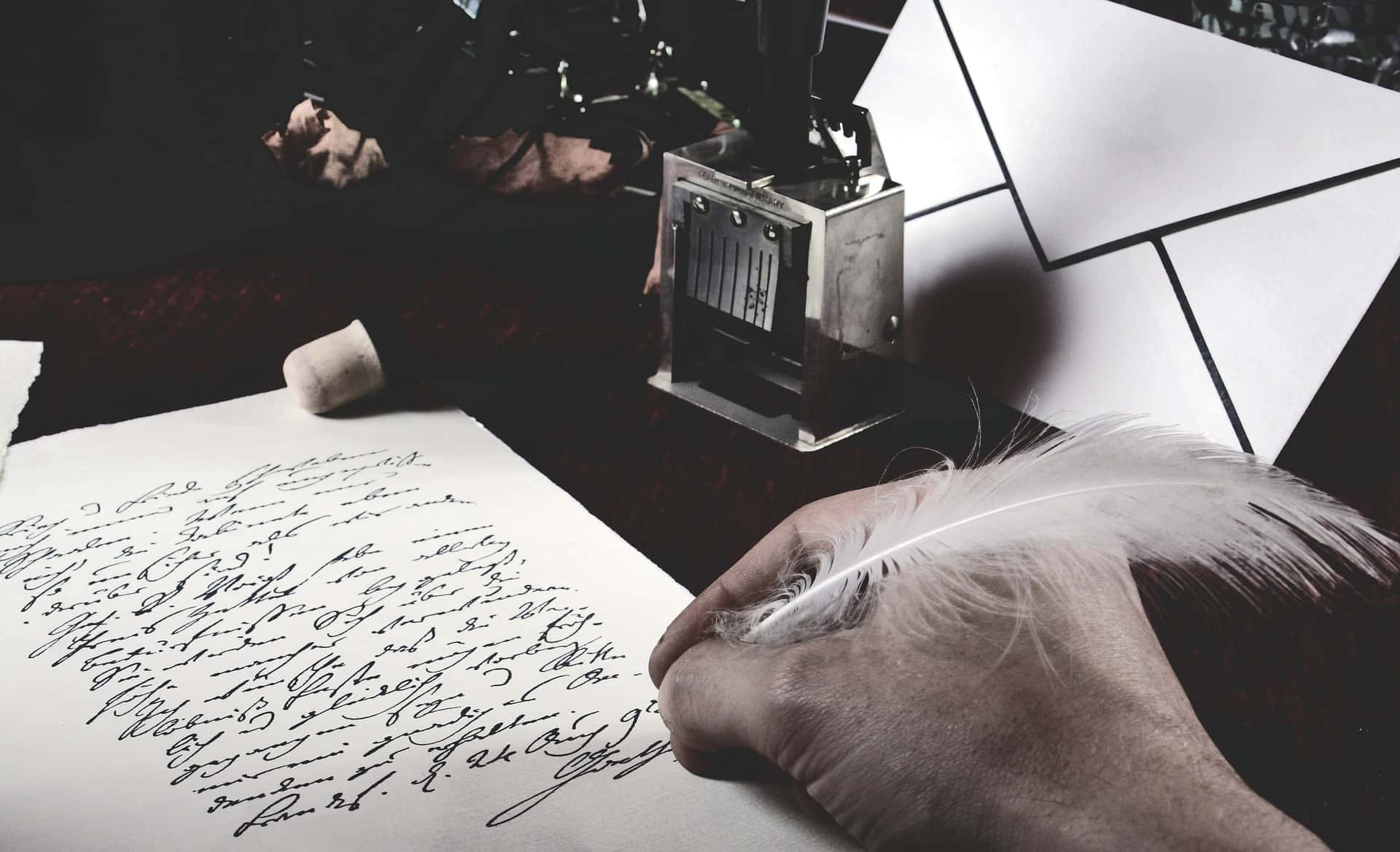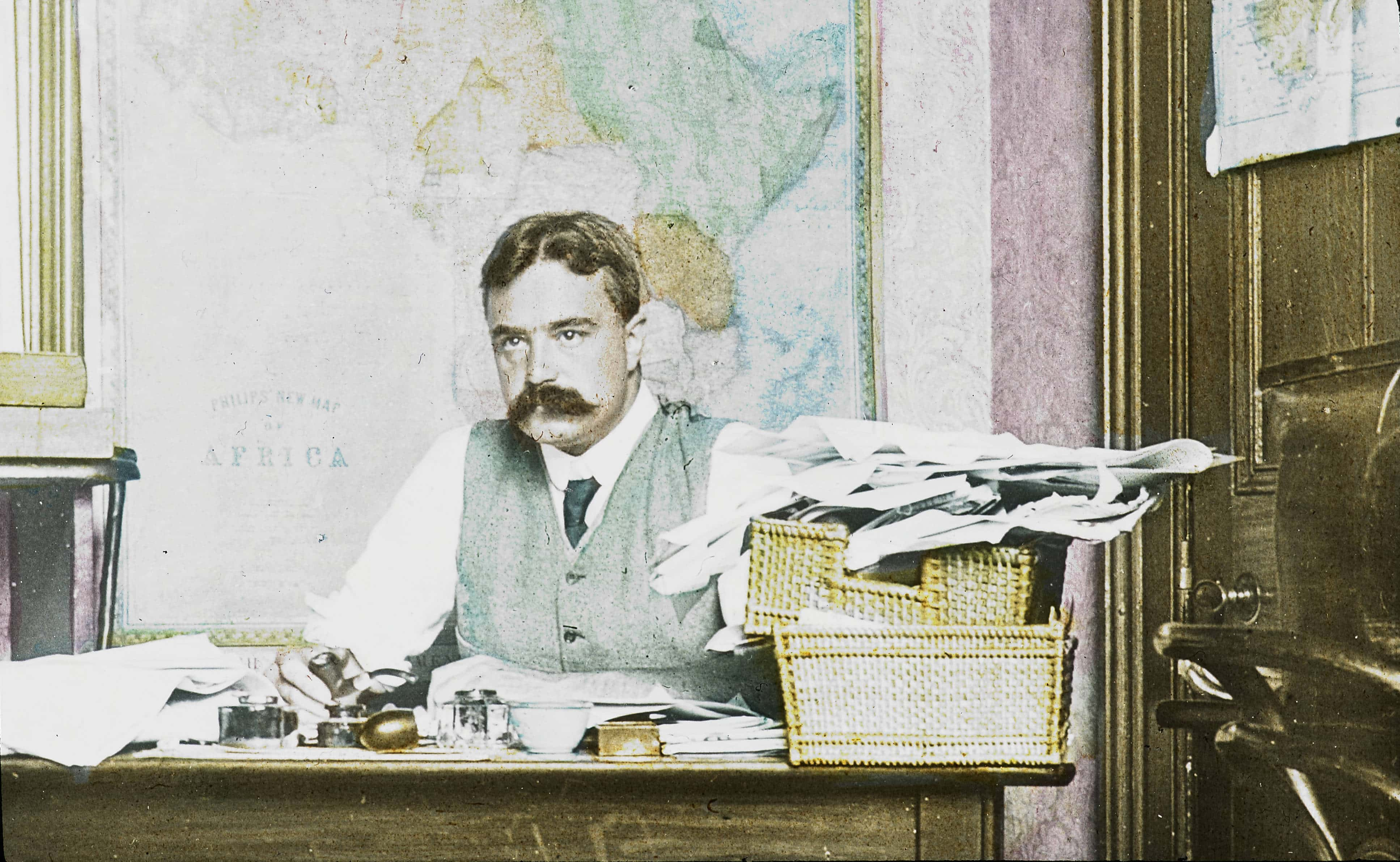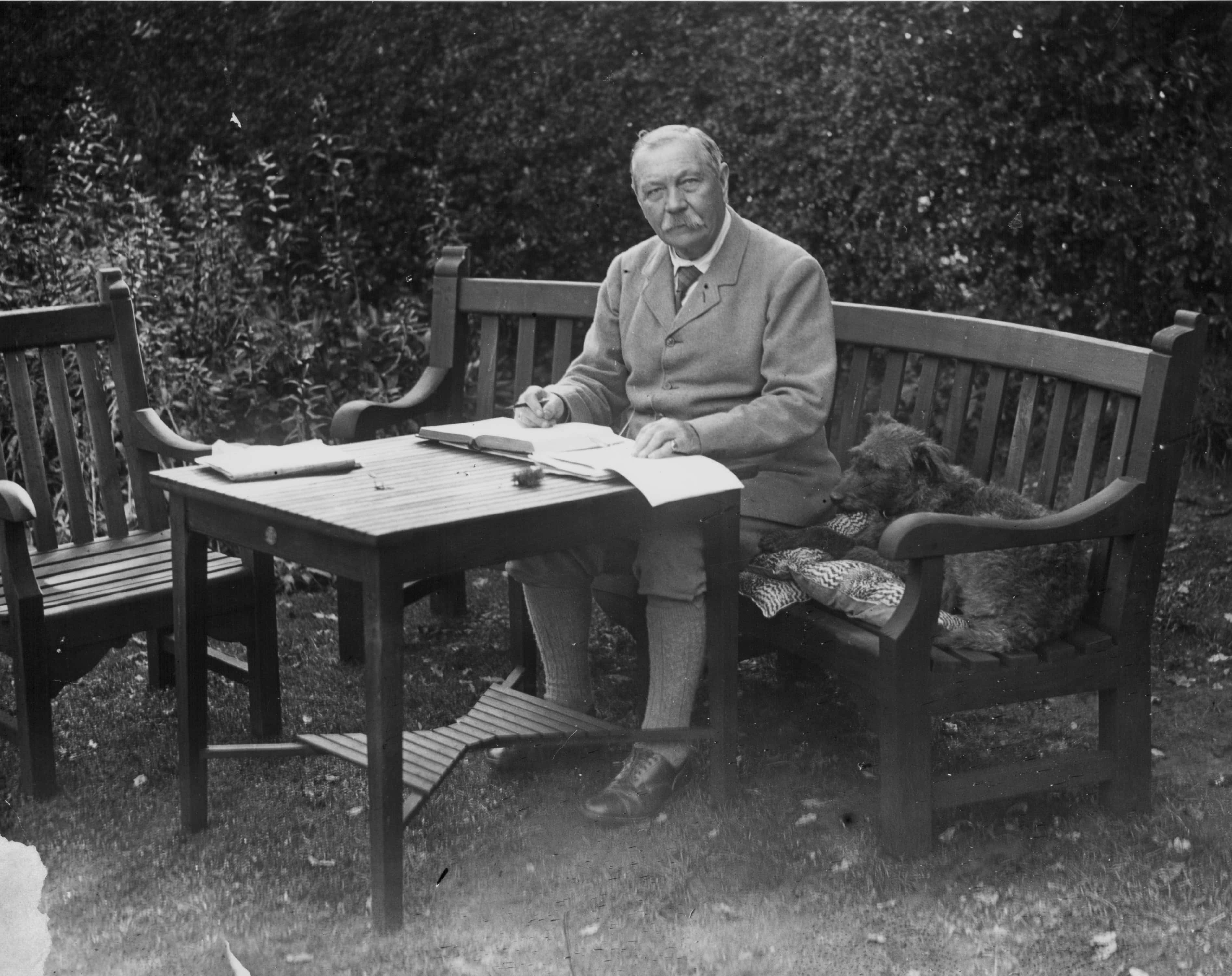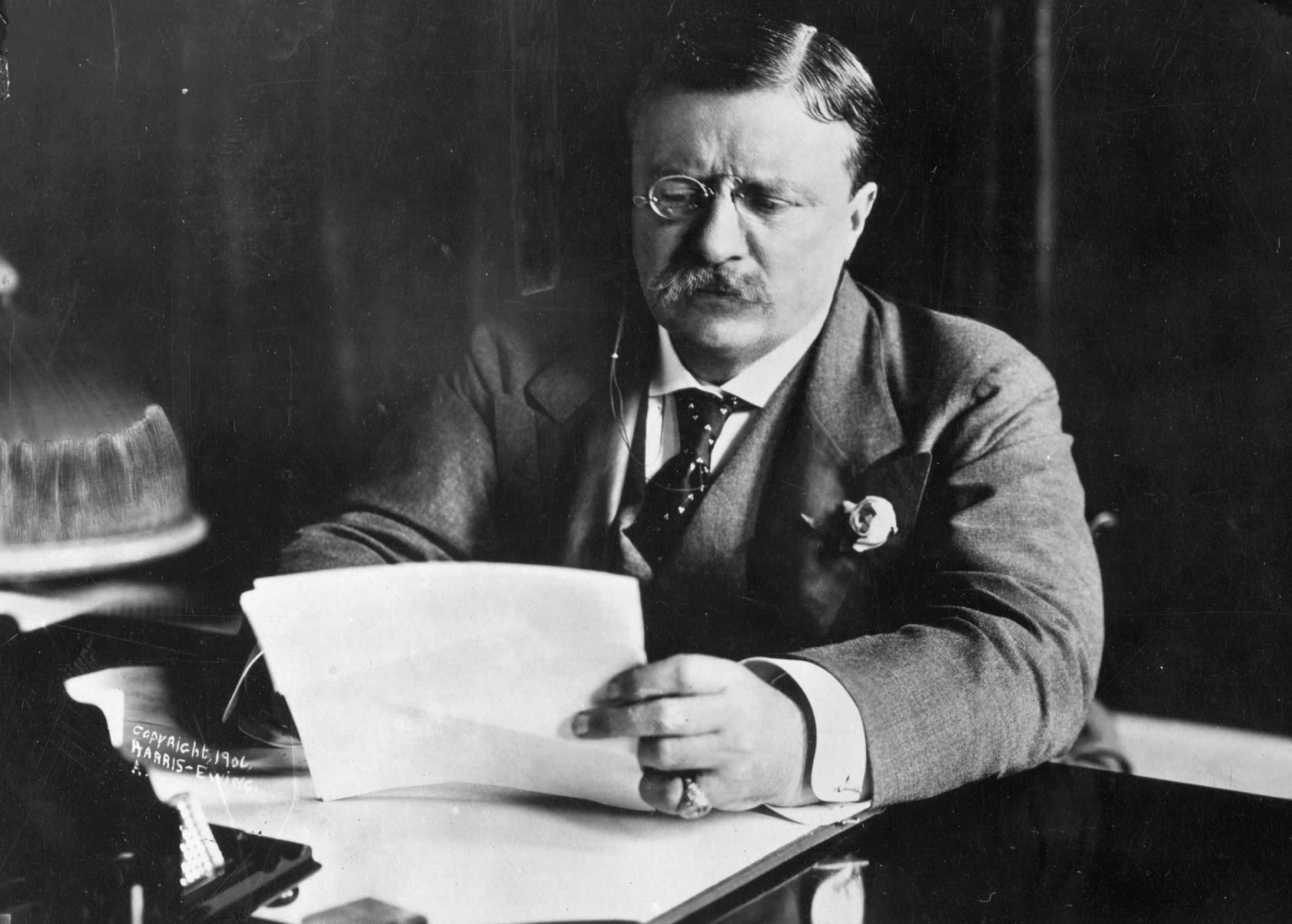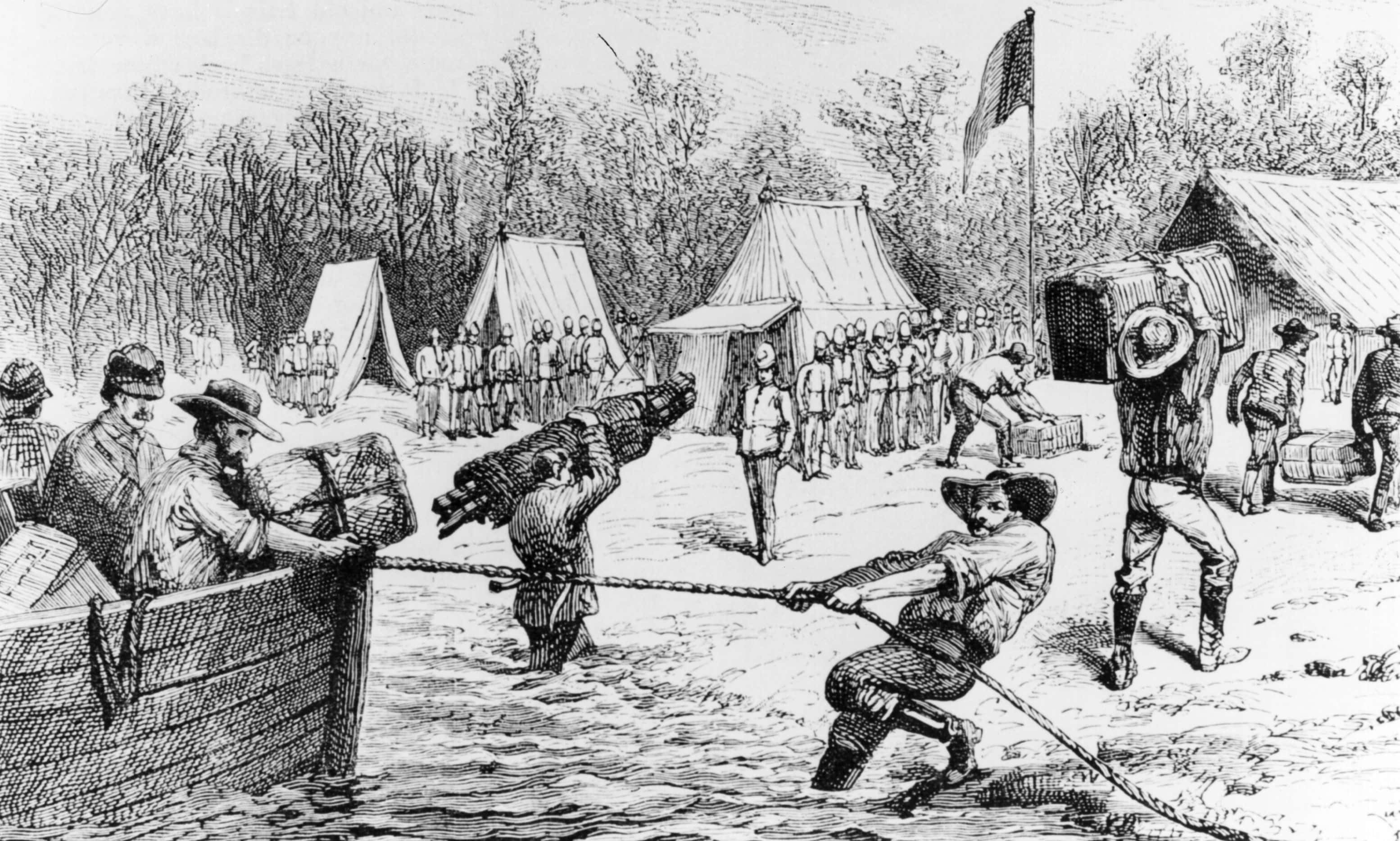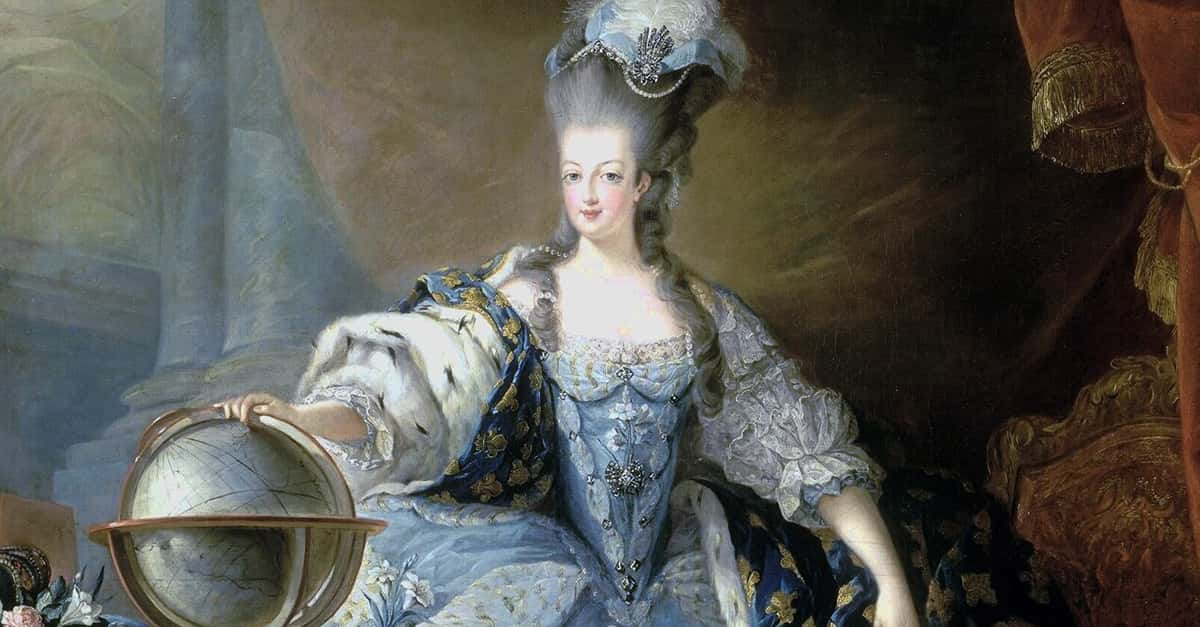Leopold II was king of the Belgians from 1865-1909 and remains the longest-reigning Belgian monarch in history. During his time as king, he led the European effort to develop the Congo River Basin, allowing for the formation of the Congo Free State. He is remembered for both helping to modernize Belgium, and for the extensive crimes against humanity that he committed in Africa. Below are 43 atrocious facts about this villainous king.
King Leopold II Facts
1. First King
King Leopold I, (father of Leopold II) was a German prince who became the first king of the Belgians in 1831. After Belgian Independence, Leopold was offered the position because of his numerous royal connections across Europe, and because he wasn’t affiliated with any countries that might pose a threat to Belgium, such as France.
2. The French Princess
King Leopold I’s first wife, and the mother of Leopold II, was Louise-Marie of Orleans, the second-born child of King Louis-Philippe of France. She was also related to Marie Antoinette, as well as Kings of Spain, Naples, Sicily, and Poland. That’s some serious pedigree!
3. Second Son
Leopold II was actually the second-born son of King Leopold I and his second wife Louise, but the first son died in 1834 shortly after his birth, making Leopold the heir presumptive.
4. Loves Music, Loves Horses
Marie Henriette of Austria, future wife of Leopold II, had a talent for music. She played the piano and the harp, and even composed her own opera called Wanda. She also loved horseback riding and painting, and spoke English, Italian, German and French. Sadly, none of that passion extended to her groom.
5. Strengthening the Monarchy
Just before her 17th birthday, Marie Henriette was married to Leopold to help strengthen the Belgium Monarchy. Marie Henriette’s Hapsburg connections made her an ideal match politically, and it probably didn’t hurt that she was also a cousin of Archduke Ferdinand of Austria, and cousin by marriage to Victoria of the United Kingdom.
6. I’d Rather Die
Marie Henriette was apparently quite unhappy about her arranged marriage, writing to her mother, “I am very unhappy, and I pray that I will be dead as soon as possible.” Ouch!
7. Unevenly Matched
According to Pauline von Metternich, a famous Austrian socialite at the time, Marie Henriette and Leopold's marriage was "between a stable-boy and a nun." That hardly sounds promising.
8. Queen of the Congo
When Leopold was 65, he took the 16-year-old prostitute Caroline Lacroix as his mistress. He gave her tons of money, land, jewels, and even made her a baroness. Needless to say, Caroline profited greatly from the King’s attention, earning her the nickname “Queen of the Congo.”
9. Premature Death
Marie Henriette gave birth to their first and only son in 1859, but he tragically died of pneumonia at age nine after falling into a pond. Leopold reportedly broke down and sobbed on his knees beside his son’s coffin. He also reportedly blamed his wife for the accident, which put a serious strain on their already unhappy marriage.

Sign up to our newsletter.
History’s most fascinating stories and darkest secrets, delivered to your inbox daily. Making distraction rewarding since 2017.
10. Seeking Power
When Belgium became an independent nation in 1830, the National Congress chose a constitutional monarchy similar to that of the UK as its government. This meant that their king would rule according to the laws of a constitution, rather than have absolute power. This may have been true of Belgium, but they never said anything about the Congo—which Leopold II ruled with an iron fist.
11. The Great Forgetting
Amazingly, throughout most of the 20th and 21st centuries, Leopold is remembered by many Belgians for all of his buildings, and not for what he did in the Congo. In 1999, an American historian published a book called King Leopold’s Ghost, drawing comparisons between him and Hitler, but while it was widely praised in America, its publication raised a lot of controversy in Belgium.
12. A Controversial Figure
To this day, Leopold II is a controversial figure in the Congo. You’d think that he’d be public enemy number one, but in 2005, the Congolese Culture Minister decided to reinstate Leopold’s statue, arguing that people should remember the positive aspects of the king and not just all of the bad stuff he did. The public reaction must have been pretty negative, as the statue was removed again just hours after being installed.
13. Carrying Out His Legacy
Explorer Henry Morton Stanley was famous partly for finding the missing Scottish explorer David Livingstone, who had disappeared in Africa several years before. Determined to carry on Livingstone’s work after his death, Stanley got financial backing from the New York Herald and the Daily Telegraph of London and headed to Africa.
During his exploration, he eventually discovered what turned out to be the Congo River Basin rather than the Nile which he’d been hoping for. Not a bad consolation prize.
14. Are You Interested?
When Stanley returned from Africa, King Leopold II and his association were all over it. He tried to recruit Stanley to work with him to further his own African ambitions. At first Stanley refused, still hoping that the British would be interested, but when he failed to get anywhere with them, he went back to Leopold and took him up on his offer.
15. Scramble for Africa
In 1884-1885, King Leopold II attended the Berlin Conference, where the European powers discussed African colonization and trade in what’s referred to as the “Scramble for Africa.” At the conference, the leaders basically divided up Africa, believing that Africa didn’t belong to anyone and therefore was up for grabs.
16. Also Known As
In addition to being known as the Builder King, which was a pretty decent name, Leopold also had a second nickname which was more reflective of his actions in Africa: He was also referred to as the Butcher of Congo for his barbarism and cruelty.
17. Hoping for a Prince
After the death of their only son, Leopold and Marie Henriette soon became pregnant again, and the couple desperately hoped that the baby would be a boy so that he would have a direct heir to his throne. Unfortunately for them, the child was a girl named Clementine and not the crown prince they were looking for. That was the final blow to their marriage, and they completely separated after her birth.
18. Succession
With no son to name as heir, the heir presumptive to Leopold II became his younger brother, Prince Philippe, Count of Flanders, which Philippe remained until his death in 1905.
19. Securing the Dynasty
After Philippe, his eldest son Baudouin was next in line for the Belgian throne—but he tragically died of influenza in 1891, well before his father and the King. Luckily for Philippe, he had a second son Albert, who eventually succeeded his uncle in 1909 as King Albert I.
20. Swindled
When Congolese tribal leaders gave Leopold permission to take control over their lands, they had no idea what they were agreeing to. The documents Leopold drew up were long and in a foreign language that they obviously didn’t understand. Just another deceitful action on Leopold’s part.
21. Political Satire
In 1905, author Mark Twain published a pamphlet titled King Leopold’s Soliloquy in condemnation of Leopold’s actions in the Congo. Written as a political satire, it takes the form of an imaginary soliloquy in which Leopold II speaks to all of the good he’s actually done in the Congo Free State. The book was published in English, French, German, and Italian, and the American publisher donated all profits from the pamphlet to relief and aid in the Congo.
22. Force Publique
To enforce rubber quotas in the Congo, Leopold employed his own private army called the Force Publique. The FP frequently took hostages, killed the families of rebels, and whipped and raped the Congolese people. As if that weren’t horrifying enough, they also burnt villages that refused to cooperate and cut off the hands of their victims, including children, as proof of their kills.
23. Red Rubber
The rubber that Leopold collected from the Congo was nicknamed "red rubber" in reference to the African blood that was spilled during its making.
 Wikimedia Commons, DelwarHossain
Wikimedia Commons, DelwarHossain
24. Booed in Brussels
Despite being the longest-reigning king in Belgium’s history at 44 years, Leopold wasn’t exactly mourned at his funeral. In fact, his funeral procession was booed by the crowd as it passed by, which was no less than he deserved.
25. Tipping Point
George Washington Williams was an American Baptist minister who decided to travel to the Congo Free State to witness the development first-hand after meeting Leopold II. What he found there shocked him, and in 1890 he wrote an open letter to Leopold II about the suffering of the natives in the region at the hands of his agent. It was Williams’ letter that spurred the international outcry about what was happening there.
26. Little Paris
One of Leopold’s visions for Belgium was to make Brussels into a Little Paris. Granted, most of the money to fund these projects came from his exploitation of the Congo, but he did commission a number of buildings, urban projects, and other private properties, which led to him being called the Builder King.
27. Honorary Knighthood
For his 18th birthday, Leopold was awarded the Grand Cordon of the Order of Leopold, an honor named for its founder King Leopold I. The honor is based on a French tradition and is one of three national honorary orders of knighthood usually given to super important people like monarchs and heirs. They couldn’t just give him a palace?
28. Failed Plan
Before turning his sights to Africa, Leopold II had his eye on the Philippines. In 1866, he sent an ambassador to talk to Queen Isabella II of Spain about ceding the territory to Belgium, but that failed. When she was removed as queen, he tried again to buy it, but lacked the funds. Having failed to do it legitimately, he tried to establish it as an independent state which Belgium could rule.
That failed too, and he finally gave up and looked elsewhere for territories he could colonize.
29. Supporting His Cause
Gennaro Rubino was an Italian anarchist known for unsuccessfully attempting to assassinate King Leopold II. For whatever reason, Rubino thought that the best way to prove his loyalty to the anarchist cause was by committing an assassination, but who was the best choice? He apparently thought about killing King Edward VII of England but decided against it, realizing how much the British people loved the monarchy.
He then chose King Leopold II of Belgium, who seemed like a more reasonable target.
30. Too Bad for Them!
Rubino fired three shots at the king’s royal cortege and missed, almost hitting the king’s Grand Marshall instead. In response to his close call, Leopold told a senator: “My dear senator, if fate wants me shot, too bad!" That’s taking it in stride.
31. Listen to Leopold’s Ghost
The 1914 poem The Congo (subtitled A Study of the Negro Race) by American Poet Vachel Lindsay was inspired by a sermon from October 1913. The sermon detailed the drowning of a missionary, and it also led to international outrage about Leopold’s exploitation. The poem included a fiery condemnation of Leopold II, with the lines “Listen to the yell of Leopold’s ghost/Burning in Hell for his hand-maimed host/Hear how the demons chuckle and yell/Cutting his hands off, down in Hell.”
The poem became one of Lindsay's most famous and popular works, and sounded pretty melodramatic when performed.
32. A Marvelous Invention
When Leopold first entered the Congo, ivory was the hot commodity. It could be used for jewelry, statuettes, piano keys, and even false teeth. Not long after, the bicycle tire was invented and then the automobile, both of which led to a huge demand for rubber around the world—another resource that the Congo had in abundance.
33. A Profitable Business
Rubber harvesting turned out to be a pretty profitable business, and Leopold was said to have earned a minimum of $1.1 billion in today’s dollars from the Congo. He spent most of his money on building palaces and monuments and clothes for his mistress, and he somehow managed to hang onto most of his fortune even after ceding the Congo to the Belgian government.
34. Ceding the Congo
As the truth of what was really happening in the Congo started to come out, in 1904, Edmund Dean Morel and Roger Casement founded the Congo Reform Movement. Because of this movement, in 1908, the Belgian Parliament bowed to international pressure and forced Leopold to surrender it to Belgium. In the end, it didn’t help much, but it seemed like a good idea at the time.
35. A Hasty Marriage
When Leopold became ill with an intestinal problem, possibly sensing the end was near, he and Caroline, his mistress of almost a decade, were quickly married. The marriage was approved by the Vatican and therefore legit with the Catholic Church, but the Belgian people felt otherwise, with many people believing that because there was no civil ceremony before his death, it didn’t count under Belgian law.
36. Illegitimate
Leopold and had two sons with Caroline Lacroix while she was his mistress, but never issued any official royal decree legitimizing them. Although he did eventually marry her, neither of the boys were eligible to inherit the throne, partly because no father was named on their birth certificates, and partly because the marriage was legally invalid. Don’t go feeling too sorry for them though...
Leopold provided very well for Caroline and the children, and they definitely didn’t suffer.
37. Putting Outrage on Paper
In 1909, Sir Arthur Conan Doyle met with Edmund Dean Morel, and so great was his fury about what was happening in the Congo that he wrote a book about it in just eight days. The book, titled The Crime of the Congo, outlined in graphic detail the brutalities being committed by Leopold II. In case the graphic descriptions weren’t enough to outrage readers, the book also included photos of mutilated bodies.
Definitely not for anyone with a weak stomach!
38. Continuing the Fight
Writing a book wasn’t nearly enough for Conan Doyle to call attention to what was happening in the Congo. He alerted newspapers, contacted world leaders including Teddy Roosevelt and Kaiser Wilhelm II, and went on a three-month lecture tour about the subject. Thanks in part to his efforts, things did start to improve in the region, but it wasn’t enough to fully erase their tragic and violent past.
39. Death Toll
Since no accurate records of the deaths in the Congo were kept, it’s impossible to get an exact number, but estimates range from anywhere between 1 million and 15 million deaths. What is known is that roughly half of the population of the Congo died during the Free State period.
40. Hiding the Evidence
Leopold obviously knew that if anyone figured out the true extent of what he was doing he’d be in big trouble, so in an effort to keep the rest of the world from finding out what he’d been up to, he destroyed the evidence. In 1908, he had all of the Congo State archives burned to ash, and he instructed his agent in the Congo to do the same. Definitely a desperate move!
41. Tarzan’s Foe
One of Leopold’s nastiest goons was the Belgian soldier and official Leon Rom. Rom was famous for his reported brutality while stationed in Stanley Falls. He’s said to have used the severed heads of 21 Congolese to decorate his flower beds, and also to have kept permanent gallows in place at his station. He also features in the 2016 film The Legend of Tarzan, in which he is portrayed as Tarzan’s main enemy. Sadly, in real life, there was no Tarzan to defeat him.
 The Legend of Tarzan (2016), Village Roadshow Pictures
The Legend of Tarzan (2016), Village Roadshow Pictures
42. Discovering Africa
The Association Internationale Africaine (African International Society) was founded in 1876 at the behest of King Leopold II and was comprised of explorers, geographers, and philanthropists with the stated goal of discovering the Congo and “civilizing” people who lived there. What Leopold was really interested in was the Congo’s natural resources, but the organization was a good front and nobody was the wiser.
43. Not So Cooperative
Initially, the AIS was supposed to be a joint effort on the part of all of its European members, but each of the countries ended up setting up their own expeditions to Africa and claiming parts for themselves with very little cooperation or information sharing taking place.
Sources: 1, 2, 3, 4, 5, 6, 7, 8, 9, 10, 11, 12, 13, 14, 15, 16, 17, 18, 19, 20, 21, 22, 23, 24, 25, 26, 27



